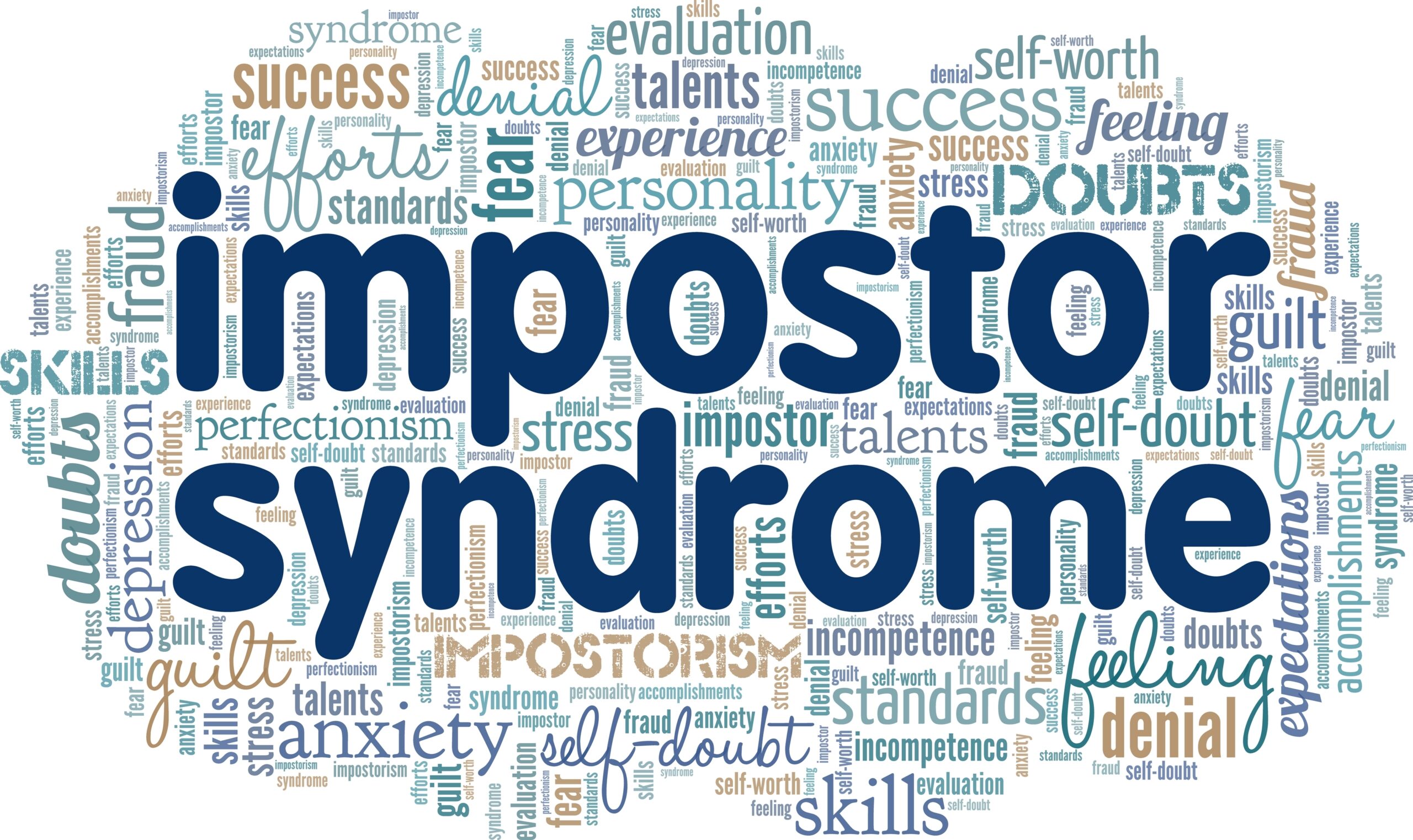


In 2014, I first realized I had Imposter Syndrome.
Awareness of my condition helped, but my initial strategies to help overcome it failed. I tried talking to myself, telling myself that “I’m great at my work” and am worthy of accolades, but didn’t truly believe it. I then tried to confide in a small group of friends at work to discuss my concerns to “boost” myself up. While this did provide camaraderie, and a shared space of commiseration, I found limited success in battling my own Imposter Syndrome.
What I did most of all was make lists of my weaknesses. I tried to convince myself that working on them would make me feel better about myself. I wanted to “fix” everything that I saw as “wrong” and hoped that the process of trying to make it right would help me achieve greater self-confidence.
Somehow, no matter what amount of effort I put into trying to “fix” what I thought was wrong with me, I wasn’t feeling better. I continued to spiral into a cycle of self-sabotage, low self-worth, and lots of self-doubt.
A few years later, I began to work with my own executive coach and had a breakthrough.
We never talked about weaknesses, we never referred to my-mile-long list of my self-determined “faults.” Instead, we talked about my strengths.
One of her first assignments for me was to write out my strengths. She said I needed to try first on my own, and then I needed to ask friends and family what they thought my strengths were. I wasn’t allowed to stop listing strengths until an entire page was full.
This small exercise shifted my perspective completely. Up until then, I had been locked into a negative way of thinking, focused on what I perceived as wrong with me rather than staying focused on what I knew was right with me. There is a strong, overpowering, internal voice that too often was a loop of negative commentary, and especially during times of accomplishment, awards, and accolades.
Imposter Syndrome shows up for individuals in several different ways, and often they are linked to have a negative mindset, but for me, it was rooted in insecurity and negative self-talk. I would run through a list of my weaknesses, terrified of being exposed as a fake or a phony, always thinking that someone would “discover” I was not qualified enough to be present, let alone lead.
The negative view of myself was so pervasive that it inhibited me from thinking about my true motivators, what inspired me, and what I wanted to be happy in my career as well as my life.
I developed a strengths-based mindset.
The first time I realized that I had shifted into a strengths-based mindset was when I was preparing for a presentation to a large group of physician professors.
When preparing, I thought about other presentations I had given and how nervous I would be each time when I agreed to speak on a topic. Doubt would often set in where I didn’t believe I was an expert on a topic. I had Imposter Syndrome and was focusing on my weaknesses that needed to be “fixed” before giving the talk. I was letting my weakness-based mindset get the better of me.
But in prepping for this presentation, my thought process had changed. I jumped straight to my strengths and intentionally ignored negative self-talk. One of my strengths is that I’m an excellent arranger where I love to and am strong at planning. I realized then, for me, the key to combating negative self-talk and doubt before a talk is to ensure that my presentation is well planned and rehearsed. Strong preparation provides me stronger self-confidence and reduces the nervousness.
It didn’t eliminate it completely, but it gave me tools to quiet the negative voice in my mind. When my Imposter Syndrome reared its gremlin head, I would recognize it, call it out as Imposter Syndrome, and continue to lean into positive affirmations.
Looking back, there were small action steps I took that culminated into larger change. Following the exercise above, I went a step further and took the Clifton Strengths Assessment and was coached through the report. It provided me with an increased awareness of my talents and own gifts.
My outlook, and subsequently, my language, changed. I dramatically reduced the amount I spoke about my weaknesses. I leaned more into discussing what was natural to me, what I did well repeatedly, and how I could use my strengths to solve problems and get to my goals faster.
A strengths-based mindset combats the negative effects of Imposter Syndrome.
Helping others helped me cultivate my talents and understand my own strengths further. I became certified as a strengths coach and have learned how to help coach others through learning about their own greatness and honoring it. I often speak to various groups about understanding their strengths and how it can lead to meaningful change and impact in their professional and personal lives.
There are many strategies to combat Imposter Syndrome, but the first is to start with the strategies that will move you more into developing a strengths-based mindset. Think of the last time someone commended you for a job well done. Was there a negative voice saying, “huh not really a big deal” or “you didn’t do anything – it was your staff member and here you go again taking credit” or “soon they will discover you are a phony and it’s not your work.” If so, shift the focus and develop your strength mindset right now! Think of that moment again, and now, lean into what’s great about yourself!
This practice doesn’t happen overnight. Knowing your strengths, accepting them and honoring them will get you there. It is a journey and I can be your thought partner along the way.
Aashi Arora, MHA, PCC
 Preparing to Step Into CEO Roles
May 30, 2023
Preparing to Step Into CEO Roles
May 30, 2023
 Tackle Imposter Syndrome by Prioritizing This Relationship
May 12, 2023
Tackle Imposter Syndrome by Prioritizing This Relationship
May 12, 2023
 How Do You Know It’s Imposter Syndrome?
Mar 08, 2023
How Do You Know It’s Imposter Syndrome?
Mar 08, 2023
 Imposter Syndrome During a Job Transition
Jan 20, 2023
Imposter Syndrome During a Job Transition
Jan 20, 2023
 4 Strategies for A Successful Interview
Oct 19, 2022
4 Strategies for A Successful Interview
Oct 19, 2022
Please subscribe to receive a pdf of 15 Ways to Tackle Imposter Syndrome
